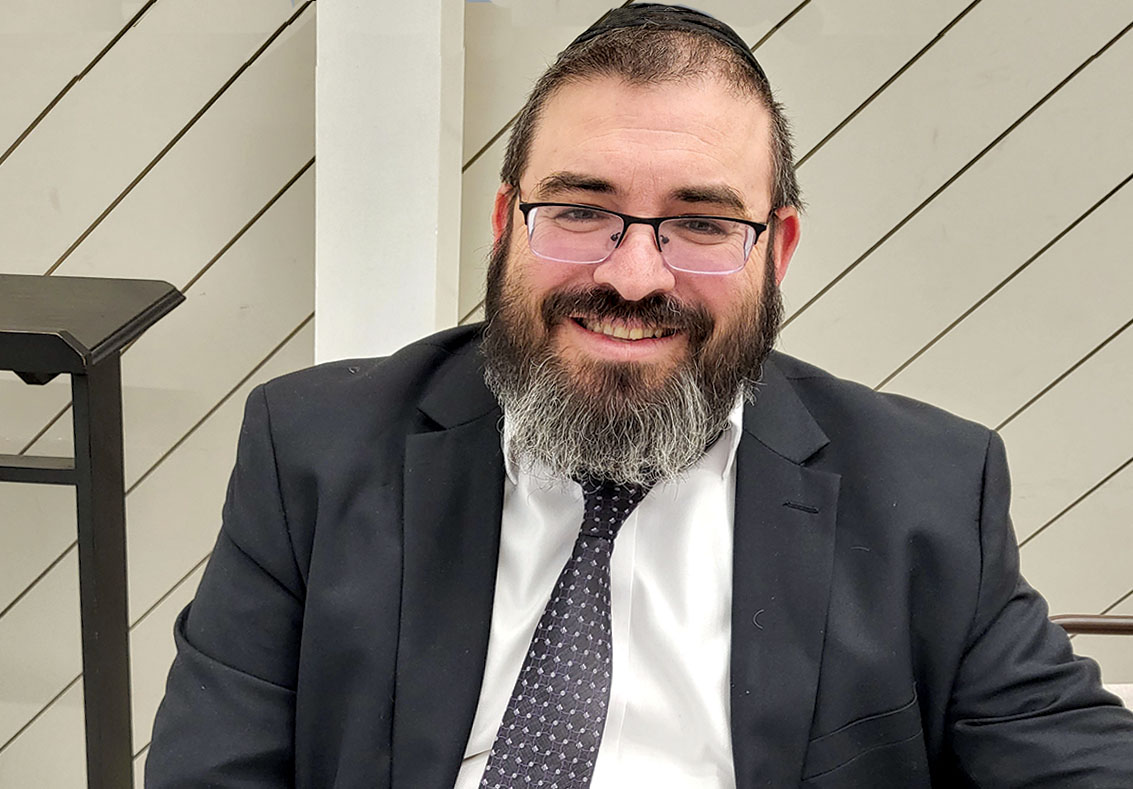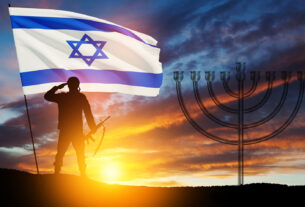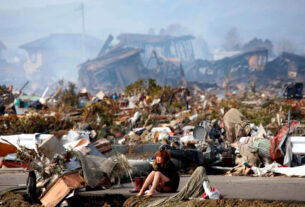Rabbi Mordechai Lebhar, the rosh kollel at LINK in Pico-Robertson, understands that the term “rosh kollel” — leader of committed learners — may intimidate some Jews. But LINK, he said, is an outreach kollel. “It doesn’t matter if you are minimally observant, not observant at all or observant,” he said. “Everyone is welcome in the kollel. Everyone has an opportunity to learn and become observant on their comfort level.”
A veteran of 15 years at LINK following five years in Toronto in his native Canada, Rabbi Lebhar refers to his students as his colleagues and as scholars. They spend their days together, 9:30 a.m. to 5:45 p.m.
While deeply committed to his family’s Moroccan traditions, Rabbi Lebhar opens the community gates as wide as possible.
“Torah in Los Angeles is not the same way Torah was 20 years ago, when LINK started,” he said. “Our kollel took the shape of really servicing the community for people who are engaged.” The LINK kollel, he emphasized, is there for all. A kollel can be any size, from several to many learners, from the minimally engaged whose hands may need to be held to the more advanced who want learning in their daily lives even if they already know how to learn.
Getting back to the question of what a rosh kollel is, he explained, depends on the kollel. “If it’s a strictly learning kollel, the job of a rosh kollel is to be a mentor to the people learning, to decide the curriculum they are learning, to provide sources, to give periodic lectures on what they are learning,” he said. “The scholars themselves also give lectures,” and can be an inspiration for others in the class.
With modest but unmistakable pride, Rabbi Lebhar told The Journal “I was brought up in the North American community of Montreal. But I lean on the Moroccan traditions and heritage to enhance my service to Hashem through our prayer, through our unique liturgy and our unique songs, and unique tradition of honoring the prophets. But at the same time it is all aligned with the rest of the Torah world because the basis is all the same.”
As for keeping Moroccan traditions alive in an Ashkenazi world, “I would say the meat-and-potatoes are the same, but the spices are a little bit different,” he said. “The reality is that what unites the Jewish people is the Torah.”
That declaration led Rabbi Lebhar into one of his favorite memories. “I always mention that I remember when I was a young yeshiva bochur, I was learning a certain sefer from the Chief Rabbi of Morocco, Rabbi Yedidyah Monsonego. He quotes, left and right, different Ashkenazim left and right, and Rabbi Moshe Feinstein. Now what does the Chief Rabbi of Morocco, who never stepped foot in America, know about Reb Moshe Feinstein? They are speaking the exact same language, Talmudic Hebrew. They are communicating so that they have everything in common.
“So Rabbi Monsonego might not have much in common with his neighbor across the street, but he will have much more in common with Reb Moshe Feinstein because they are learning the same texts, and they are learning the same way. And they are totally engaged.”
How aware are Rabbi Lebhar’s students of his Moroccan background? “Very,” he. said. “I am very passionate about it, and the passion rubs off.” While they may not share his Moroccan background they are his colleagues “because they are great Torah scholars in their own right. We learn together. I happen to be the one who is responsible for coordinating the learning. But I look at them as my peers, as my colleagues. And we are in a job together.”
Many of the sources they are learning are from Moroccan rabbis. For example, he said “the Ohr Hachhayim Hakkadosh [The Holy One] was Moroccan. Just as I learned a lot of Ashkenazic sources, they learned Sephardic sources as well. It’s all the same Torah. I engage a lot in that, and they know that is my passion. Some in the kollel have the passion of different rabbanim. So we all learn from each other.” But there is no doubt about who influenced Rabbi Lebhar. “I absorbed how I learn,” he said, “from my great rabbanim who are a combination of great Ashkenazim and great Moroccan rabbanim.”
While his primary commitment is to teach Torah, “Morocco is a niche of mine that I hope I am filling. It complements whatever we are doing in the kollel because I am able to gain energy — and the sources are all the same.” How would Rabbi Lebhar’s colleagues/students know about his Moroccan background? In the usual way. “We spend most of the day together in the same room,” he said. “Our families know each other well. So you learn about the other person.” He is that rare Sephardic Jew who is so fluent in Yiddish he could give a class in the language.
Growing up in Montreal, he said the only difference between Morocco and Montreal is that “the earth in Montreal is a bit colder during certain parts of the year. Besides that, Montreal is more Moroccan than Morocco. I grew up in that bubble as if I were in Morocco.”
Rabbi Lebhar believes “I had the best of both worlds. I was blessed to learn in prestigious Ashkenazi institutions. I was able to glean a lot of positive communal life from Montreal, and that inspired me to continue and promote that with the Torah scholars of Morocco. Every Moroccan will tell you they have a lineage of Tzaddikim, as I do.”
Rabbi Lebhar’s almost daily podcast: https://podcasts.apple.com/us/podcast/magen-avot-halacha-parasha-by-rabbi-lebhar/id1497356865
Jewish Journal: What is your favorite childhood memory?
Rabbi Lebhar: Memuna – a Moroccan tradition. After Pesach is over, we go from house to house. In Montreal, it was out of this world.
J.J.: The single happiest moment of your life?
RL: Getting married. Very close second is grandchildren.
J.J. What do you do to relax?
RL: My whole day is relaxing. I love what I do.




